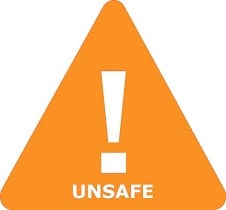Is EINECS 200-379-4 Safe in Breastfeeding
Question
I am a breastfeeding mother and i want to know if it is safe to use EINECS 200-379-4? Is EINECS 200-379-4 safe for nursing mother and child? Does EINECS 200-379-4 extracts into breast milk? Does EINECS 200-379-4 has any long term or short term side effects on infants? Can EINECS 200-379-4 influence milk supply or can EINECS 200-379-4 decrease milk supply in lactating mothers?
EINECS 200-379-4 lactation summary

- DrLact safety Score for EINECS 200-379-4 is 5 out of 8 which is considered Unsafe as per our analyses.
- A safety Score of 5 indicates that usage of EINECS 200-379-4 may cause serious side effects in breastfed baby.
- Our study of different scientific research indicates that EINECS 200-379-4 may cause moderate to high side effects or may affect milk supply in lactating mother.
- Our suggestion is to use safer alternate options rather than using EINECS 200-379-4 .
- It is recommended to evaluate the advantage of not breastfeeding while using EINECS 200-379-4 Vs not using EINECS 200-379-4 And continue breastfeeding.
- While using EINECS 200-379-4 Its must to monitor child for possible reactions. It is also important to understand that side effects vary largely based on age of breastfed child and time of medication in addition to dosage.
- Score calculated using the DrLact safety Version 1.2 model, this score ranges from 0 to 8 and measures overall safety of drug in lactation. Scores are primarily calculated using publicly available case studies, research papers, other scientific journals and publically available data.
Answer by Dr. Ru: About EINECS 200-379-4 usage in lactation
May be a cause of galactorhrea by stimulting release of prolactin. Not commercially available in Spain
Answer by DrLact: About EINECS 200-379-4 usage in lactation
Based on minimal excretion of other phenothiazine derivatives, it appears that occasional short-term use of EINECS 200-379-4 for the treatment of nausea and vomiting poses little risk to the breastfed infant.
EINECS 200-379-4 Possible Effects in Breastfeeding
Galactorrhea has been reported with EINECS 200-379-4.[1] Hyperprolactinemia appears to be the cause of the galactorrhea.[2][3][4] The hyperprolactinemia is caused by the drug's dopamine-blocking action in the tuberoinfundibular pathway.[5] The prolactin level in a mother with established lactation may not affect her ability to breastfeed.
Alternate Drugs
Dimenhydrinate(Low Risk)
Meclizine(Low Risk)
Domperidone(Safe)
Thiethylperazine(Unsafe)
Trimethobenzamide(Unsafe)
Cyclizine(Low Risk)
Promethazine(Low Risk)
Ondansetron(Safe)
Metoclopramide(Safe)
Prochlorperazine(Unsafe)
Droperidol(Low Risk)
Doxylamine(Unsafe)
Famotidine(Safe)
Sodium Picosulfate(Safe)
Dimenhydrinate(Low Risk)
Cimetidine(Low Risk)
Cascara Sagrada(Low Risk)
Misoprostol(Safe)
Rifaximin(Safe)
Bisacodyl(Safe)
Adalimumab(Safe)
Thiethylperazine(Unsafe)
Alosetron(Low Risk)
Domperidone(Safe)
Peppermint(Safe)
Sulfasalazine(Safe)
Trimethobenzamide(Unsafe)
Cyclizine(Low Risk)
Olsalazine(Safe)
Ursodiol(Safe)
Mesalamine(Safe)
Sucralfate(Safe)
Octreotide(Safe)
Loperamide(Safe)
Senna(Safe)
Prochlorperazine(Unsafe)
Rabeprazole(Safe)
Linaclotide(Safe)
Certolizumab Pegol(Safe)
Pantoprazole(Safe)
Metoclopramide(Safe)
Droperidol(Low Risk)
Lansoprazole(Safe)
Esomeprazole(Safe)
Doxylamine(Unsafe)
Magnesium Sulfate(Safe)
Ranitidine(Safe)
Magnesium Hydroxide(Safe)
Dexlansoprazole(Safe)
Omeprazole(Safe)
Magnesium Oxide(Safe)
Infliximab(Safe)
Cisapride(Safe)
Nizatidine(Safe)
Docusate(Safe)
Etanercept(Safe)
Trifluoperazine(Safe)
Thioridazine(Unsafe)
Chlorpromazine(Low Risk)
Thiethylperazine(Unsafe)
Promethazine(Low Risk)
Prochlorperazine(Unsafe)
Perphenazine(Safe)
Mesoridazine(Unsafe)
Fluphenazine(Low Risk)
